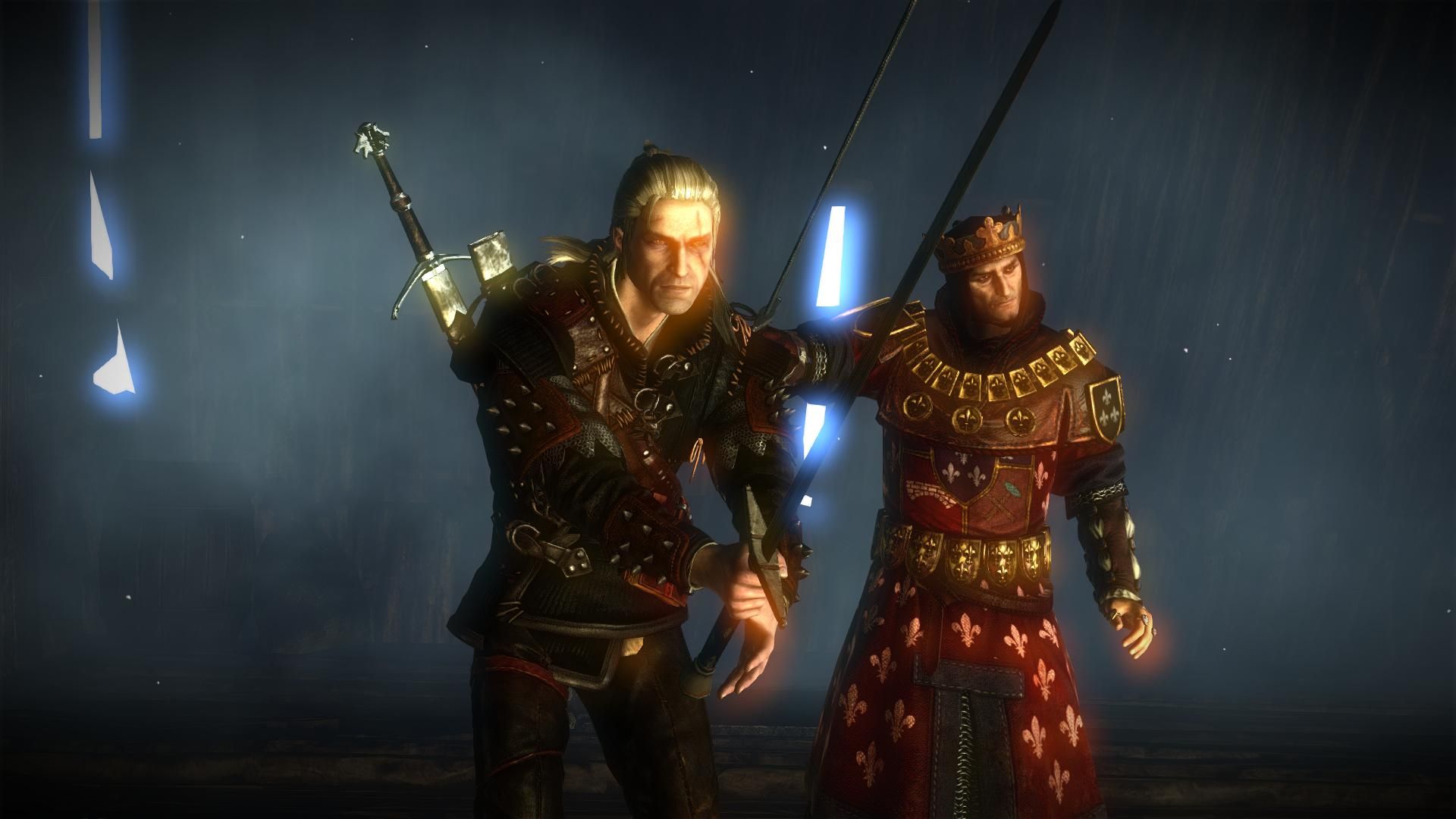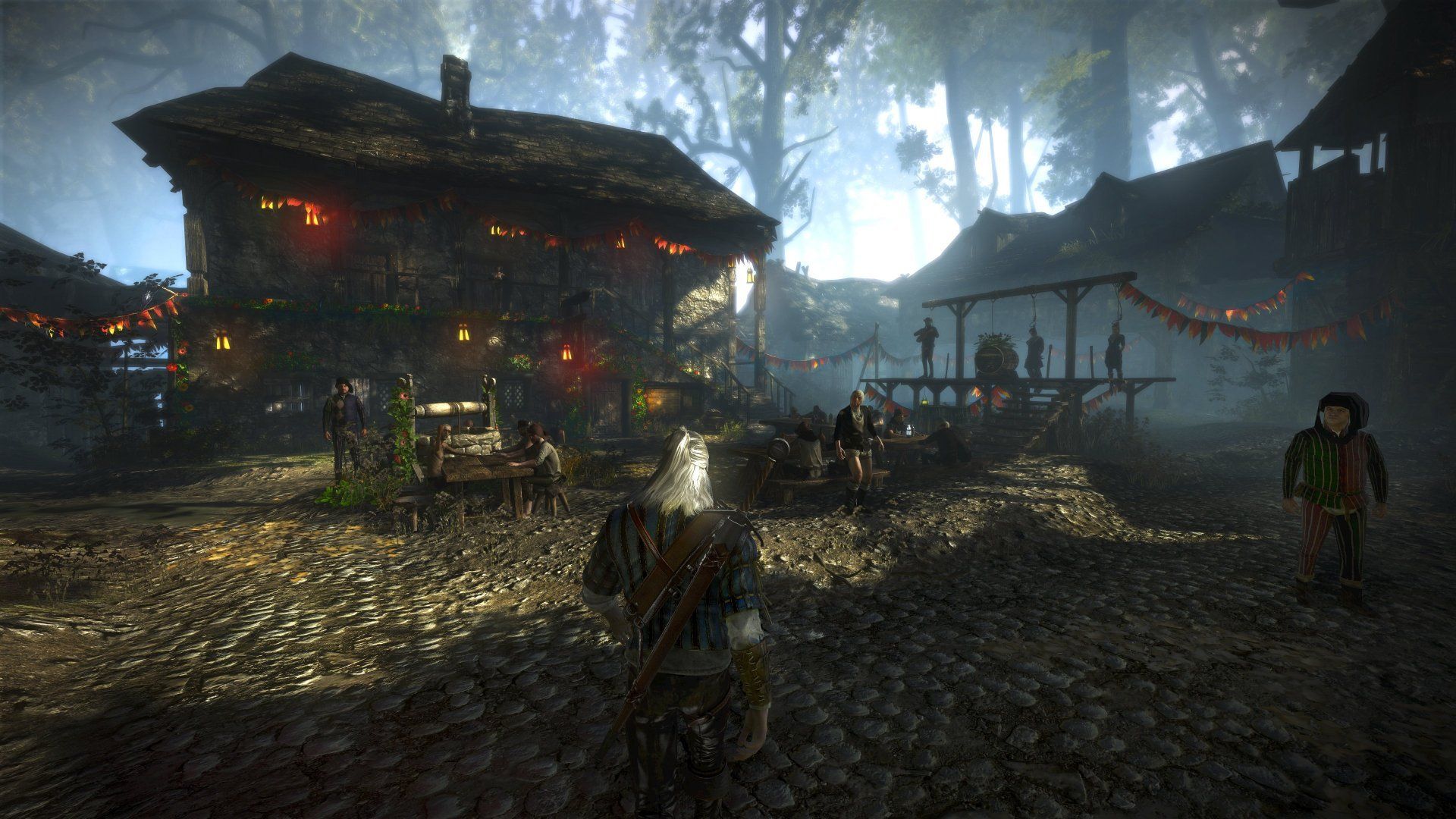CD Projekt RED, developers of the awesome Witcher series for PC, have recently taken a very interesting stance to fighting the rampant piracy surrounding the second, and most recent, game in the series. What they have been doing, specifically in Germany, is hunting down supposed pirates and threatening them with lawsuits if they don't pay up for stealing. While CD Projekt was never very clear on exactly how they were going about gathering information on people, they began sending the threatening letters last month to the supposed people.
This caused an enormous backlash, as fans were understandably enraged at this seeming breach of privacy. However, CD Projekt (also understandably, seeing as how the Witcher 2 sold just over a million units... yet was downloaded illegally an estimated 4.5 million times) stood their ground, stressing that their pirate hunt was due to their resistance to using DRM. CD Projekt has relented, and released an open letter in part apologizing, and in part pleading with the community. You can read the full letter, and my full opinion on what it means, after the jump.
An Open Letter to the Gaming Community from CD Projekt RED In early December, an article was published about a law firm acting on behalf of CD Projekt RED, contacting individuals who had downloaded The Witcher 2 illegally and seeking financial compensation for copyright infringement. The news about our decision to combat piracy directly, instead of with DRM, spread quickly and with it came a number of concerns from the community. Repeatedly, gamers just like you have said that our methods might wrongly accuse people who have never violated our copyright and expressed serious concern about our actions. Being part of a community is a give-and-take process. We only succeed because you have faith in us, and we have worked hard over the years to build up that trust. We were sorry to see that many gamers felt that our actions didn't respect the faith that they have put into CD Projekt RED. Our fans always have been and remain our greatest concern, and we pride ourselves on the fact that you all know that we listen to you and take your opinions to heart. While we are confident that no one who legally owns one of our games has been required to compensate us for copyright infringement, we value our fans, our supporters, and our community too highly to take the chance that we might ever falsely accuse even one individual. So we've decided that we will immediately cease identifying and contacting pirates. Let's make this clear: we don't support piracy. It hurts us, the developers. It hurts the industry as a whole. Though we are staunch opponents of DRM because we don't believe it has any effect on reducing piracy, we still do not condone copying games illegally. We're doing our part to keep our relationship with you, our gaming audience, a positive one. We've heard your concerns, listened to your voices, and we're responding to them. But you need to help us and do your part: don't be indifferent to piracy. If you see a friend playing an illegal copy of a game--any game--tell your friend that they're undermining the possible success of the developer who created the very game that they are enjoying. Unless you support the developers who make the games you play, unless you pay for those games, we won't be able to produce new excellent titles for you. Keep on playing,Marcin Iwinski co-founder CD Projekt RED
Piracy is one of the more infuriating things we see in this industry. It reeks of entitlement and selfishness, the sense that people believe that they deserve the game, regardless of whether they have the money to pay for something. Personally, I actually appreciate CD Projekt's apparent sincerity in the above letter. I think that if they hadn't charged close to $1000 per accusation, not made their methods so secret and if could have shown that the people they went after were actually pirates, then their whole methodology would have been more than reasonable.
Unfortunately, it looked incredibly shady to just have a bunch of attorneys send out such threatening letters to people, some of whom may have legally purchased the game. The biggest problem with this was specifically how it circumvented the justice system. For a $60 game, CD Projekt was demanding a straight up settlement of around 750 Euros (roughly $961). No matter how right their actual motives were, that was particularly sickening, as fighting the case would easily run far over that. While I understand the desire to teach the pirates a lesson, this was the absolute wrong way to go about doing this. In the end, it is a really good thing for the gaming community that they have stopped this before it either caught on or got really out of hand.
This was a practice that had to be stopped. While their stance on DRM is admirable, they sacrificed a lot of good will when they started issuing these huge fines. However, their side of the story must be examined too. Ignoring the steep fine and the lack of proof, it is hard to argue they did not have a valid reason to pursue this course of action. Of course they could have used a little moderation, but it had to be incredibly frustrating for them to watch as their game, which they decided to trust the gaming community with by refusing to put DRM software on, was pounced on by pirates. Some piracy is to be expected of course; there will always be jerks who feel they're entitled, people who just don't care or others who justify piracy one way or the other. For the most part however, what they saw was a complete shattering of the trust they put in their potential consumers by not including DRM software.
There is a strange sort of "us-vs-the companies" mentality that seems to run under the surface of most arguments about piracy, one that allows pirates to feel justified in their illegal activities even when the company is generally known for their consumer friendliness. And yet, people wonder why Ubisoft is so reluctant to put games out on PC or why EA is so insistent on DRM, it is because of the clear evidence that pirates are actively hurting the potential gains to be made on a project that literally took people years to build and craft.
This sentiment really comes through in the last paragraph of Iwinski's letter. He stands his ground, stubbornly refuses to admit he has done something wrong in the second paragraph, but in the final paragraph, he seems to break down. Iwinski seems genuinely concerned with the state of the industry and the seeming complacency that surrounds piracy. He has every right to be. He had front row seats to the proof that there is a problem with the outright theft practiced by media pirates.
While I am thrilled to see that they have stopped what was blatant harassment and possibly even borderline extortion, it is hard to blame CD Projekt for their motives. Had their methods been more rational, then maybe they would not have suffered the backlash. One thing I can say with absolute clarity though, is that the final sentence certainly rings true:
Unless you support the developers who make the games you play, unless you pay for those games, we won't be able to produce new excellent titles for you.


